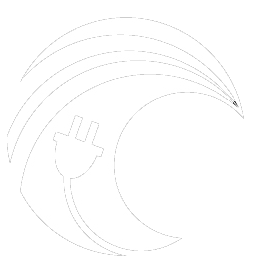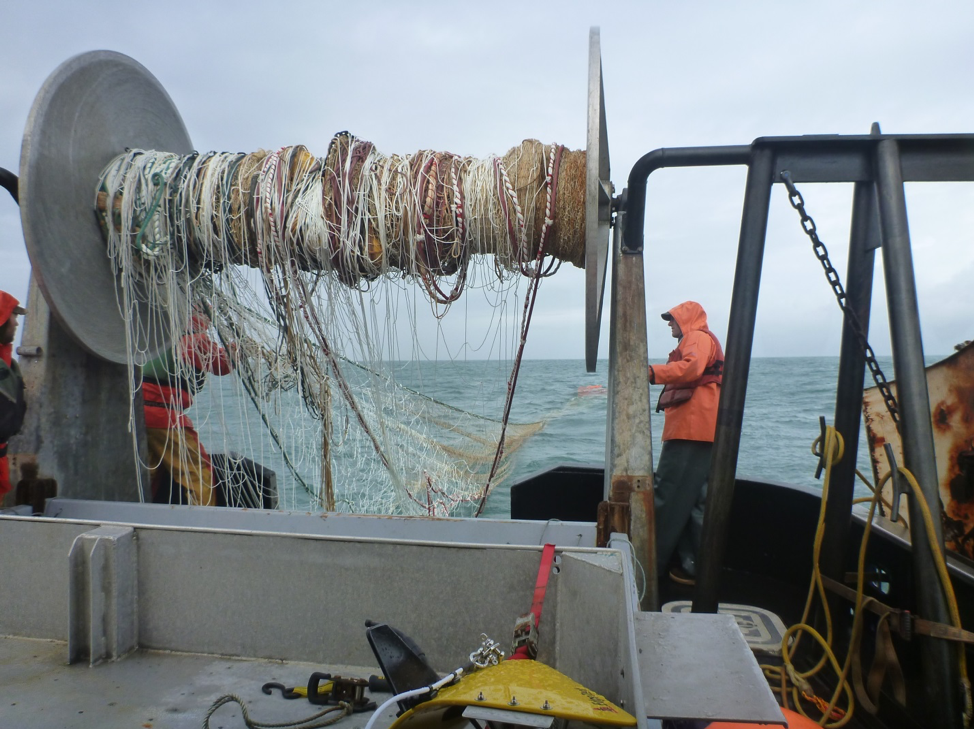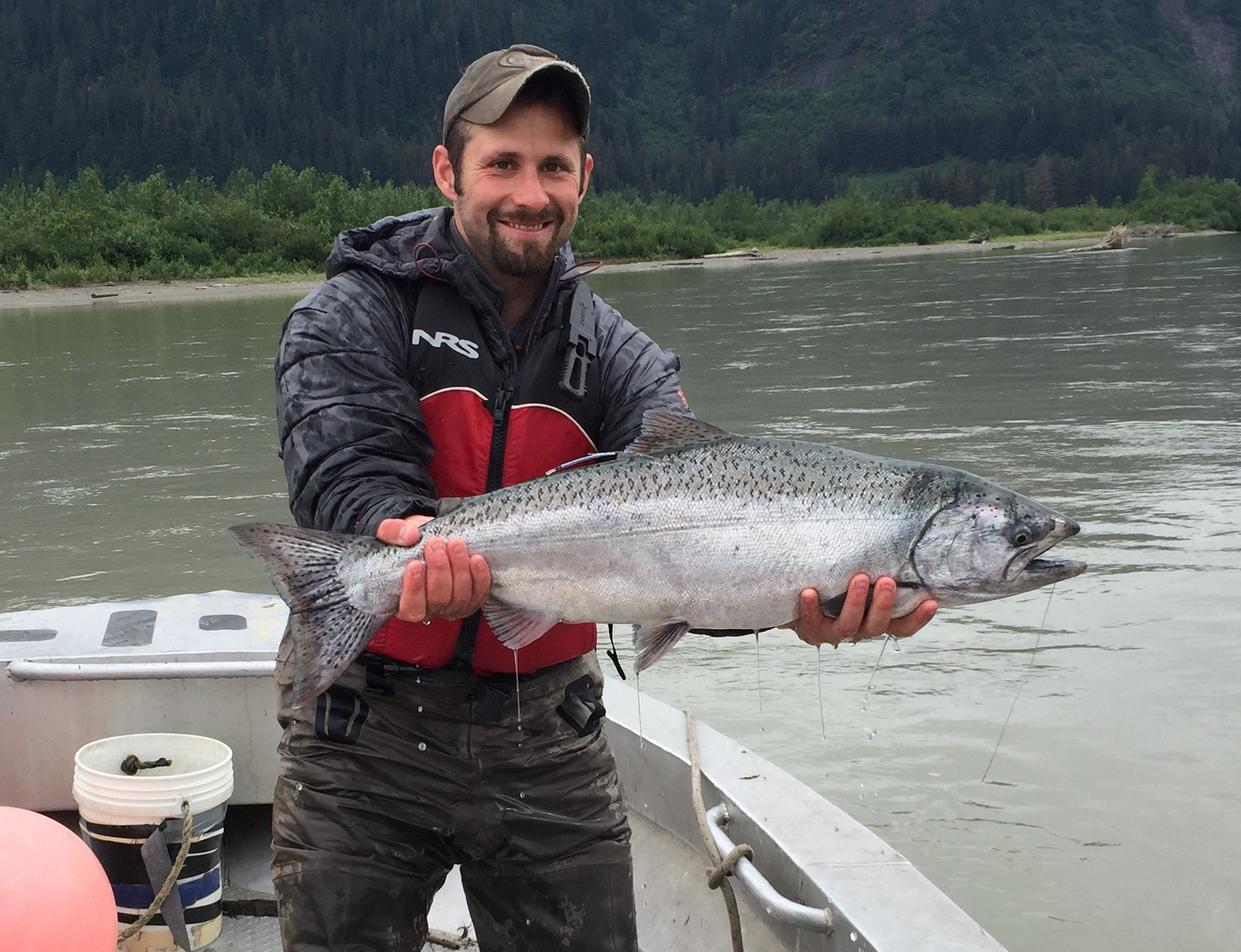Motivation:
To advance wave energy technology in an environmentally responsible manner, site-specific studies are needed to assess the potential interactions between fish and marine renewable energy devices. Yakutat, Alaska, is a potential site that is being considered for a major wave energy installation. The goal of this project is to synthesize existing information and conduct additional field sampling near Yakutat to comprehensively characterize the fish community prior to wave energy device deployment.
Summary:
The project uses new sampling methods to complement previous studies and increase the understanding of the fish community near Yakutat, AK.
The results will be integrated with other lines of research to provide a comprehensive physical, biological and chemical description of this potential wave energy site prior to device deployments.
Fish sampling at a potential wave energy test site near Yakutat, AK.
Current Results:
One field season of trawl sampling and one field season of rod and reel sampling have been conducted. Mid-water trawling captured very few fishes while bottom trawling produced substantially more fishes, consisting mostly of flatfishes. Rod and reel fishing in the spring and summer captured relatively few fishes consisting mostly of small Pacific halibut and big skates, while fall fishing captured relatively abundant Coho salmon.
Mid-water trawl (squares), bottom trawl (circles), surface trawl (pentagons), and beach seining sites (triangles) from Arimitsu et al. 2002 (green symbols), Arimitsu et al. 2016 (gray symbols), Neff 2016 (dark orange symbols), NOAA’s annual bottom trawl surveys (light orange symbols), and this study (brown symbols) in nearshore waters adjacent to Yakutat, AK.
Research Team:
More Information:
Poster presentation: “Preliminary assessment of the nearshore marine fish assemblage near Cannon Beach, Yakutat, AK”, Annual Meeting of the Alaska Chapter of the American Fisheries Society in Sitka, AK
Yakutat Wave Energy Resource Assessment, Alaska Center for Energy and Power website
Pondering the power of the ocean, Valdez Star/UAF Geophysical Institute
Sponsor:
Funding for this research is provided by the United States Bureau of Ocean Energy Management.
Last Updated: Nov. 27, 2019






